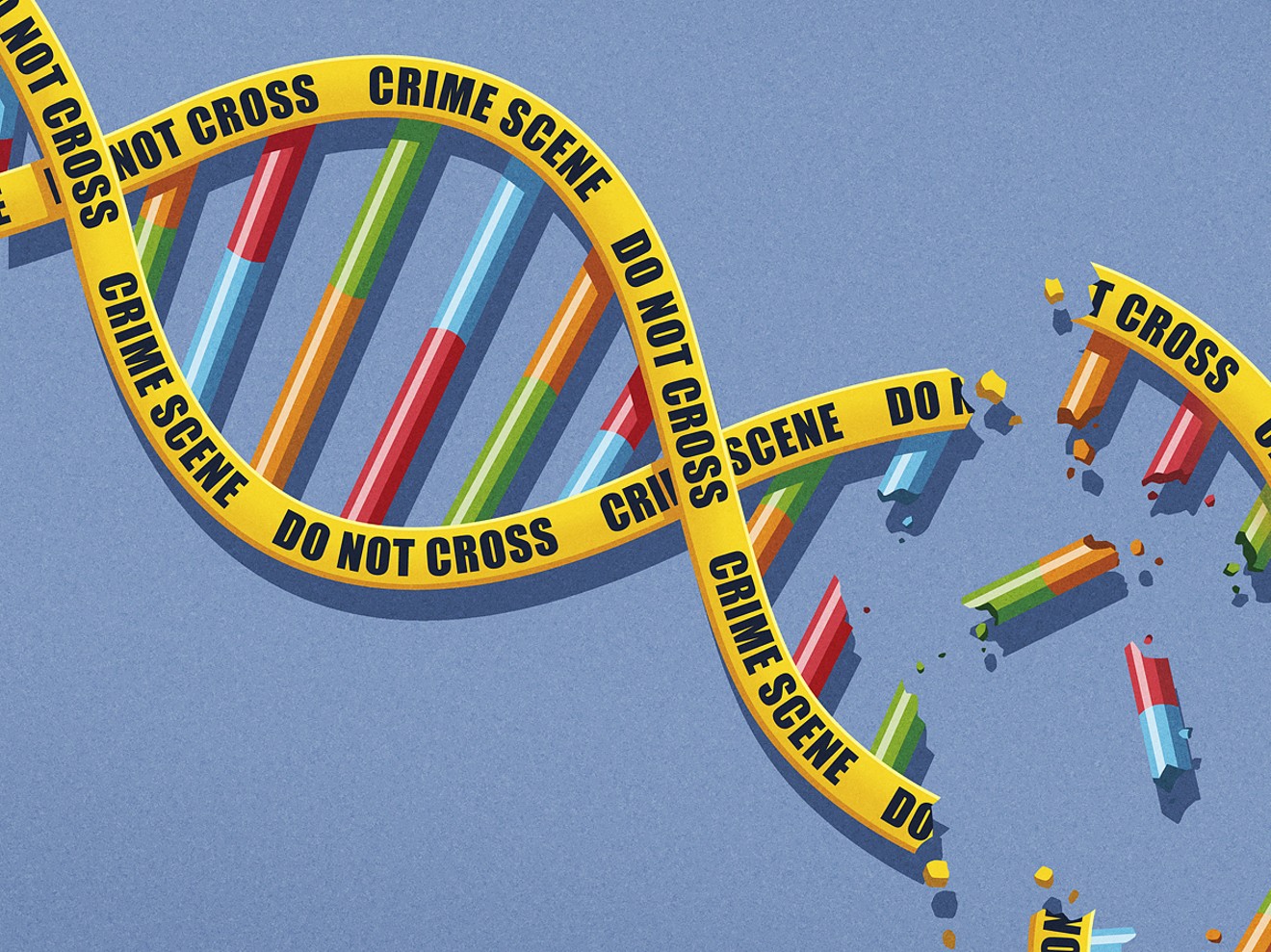By 2014, the Broward Sheriff's Office (BSO) and Broward State Attorney's Office had learned of misconduct allegations against former BSO crime lab analyst Kelli McDonald. That year, New Times broke the news that multiple cases handled by McDonald had either tainted or missing drug evidence. After the story came out, State Attorney Mike Satz's office began investigating the allegations; McDonald later resigned from her post in 2016.
But this past March, nearly five years after launching the investigation, Satz's office quietly closed the McDonald case. The reason: There was no evidence to prove she broke the law.
In a previously unreported March 21 close-out memorandum, Assistant State Attorney Christopher Killoran concluded "that no criminal activity by McDonald can be proven and therefore no charges will be filed. It should be noted that while this investigation started out as looking into the alleged conduct of McDonald to determine whether any crimes were committed, the investigation included also reviewing the protocols and procedures of the crime lab from 2012 until present to determine what, if anything, can be done to prevent a future environment similar to that in 2012 that allowed drugs to go missing."
In 2014, then-New Times reporter Kyle Swenson reviewed hundreds of pages of case files from BSO's crime lab, which tests drug evidence collected by cops throughout Broward County. Records showed that in one of McDonald's cases, marijuana evidence was listed as different weights in police reports and lab analyses. In another case, a 0.4-gram, pencil-eraser-size piece of crack cocaine had gone missing from one of McDonald's cases. In a third incident, a stash of cocaine initially listed as containing 1,012.6 grams of cocaine wound up weighing 998.3 grams after it was reweighed amid an internal probe into her conduct. After those cases came to light, the crime lab suspended McDonald. By that point, she had worked more than 5,900 cases, and only a small fraction had been reexamined.
Since then, Broward County Public Defender Howard Finkelstein — Satz's longtime nemesis — and his second-in-command, Gordon Weekes, have held up the McDonald case as evidence that more of the former analyst's cases should be reopened. In an open letter earlier this month, Finkelstein and Weekes accused Satz of "institutional failures" of justice during his nearly 50-year career — failures that, in their opinion, included the handling of the McDonald cases.
But things only grew worse for the crime lab in subsequent years. In 2016, McDonald resigned and New Times obtained a deposition from her former boss, Randy Hilliard, who admitted under oath that lab workers were under so much stress they routinely broke down emotionally and physically, and added that techniques were not in place at the time to catch the mistakes lab workers might have made. (That year, the lab separately suspended some DNA analysis after New Times reported that BSO analysts were misusing DNA-testing techniques that could have been used to wrongfully charge people with crimes.)
But Satz's office kept McDonald's case open for nearly another three years. According to the previously unreported close-out memorandum, Killoran said a confluence of factors forced the State Attorney's Office to continue investigating. For one, the case was apparently handled by multiple investigators before it reached Killoran, and, moreover, he somehow didn't receive key evidence — an audit completed in 2014 — from his predecessors until this past January. Satz's office also said it kept the case open as it monitored the crime lab's progress in general.
However, other aspects of the close-out memo still raise questions. Investigators noted that McDonald's workstation had been "in a remote part" of the lab away from supervision, that McDonald routinely checked out more than one case at a time, and that she was allowed to keep drug evidence in her personal locker while she worked cases. Staggeringly, prosecutors said McDonald somehow misplaced drug evidence but blamed the discrepancies on "health issues that caused her to miss work" and the overall disorganization of the lab at the time.
"With that said, drugs did go missing at least twice," the state's memo says. "It appears that this could logically be concluded as occurring due to the manner in which the lab was run previous to 2014. The lack of oversight, the lack of proscribed procedures being followed allowed for, arguably, an environment that allowed drugs to be unaccounted for." In another part of the memo, prosecutors say it seemed McDonald was simply "overworked and refused to ask for help."
However, Satz's office ultimately said it could not pin any crime on McDonald. Prosecutors noted that, after being retested, some cases came back showing more drugs than had been originally cited. Moreover, prosecutors said McDonald passed two drug screenings, including one that was administered during the investigation.
"The State is unable to prove that she stole any drugs," the memo states. "There is a complete lack of evidence, other than the discrepancies in weight, that McDonald stole any drugs. Both given the lack of eyewitnesses, no surveillance camera footage, the fact that there were multiple cases that when audited contained more drugs than she had previously reported, as well as the fact that McDonald's drug screen came back negative (including on 8/24/12 and 2/4/14 — the latter of which was due to the initiation of this investigation), the State cannot show she intentionally and willfully took the drugs for her, or someone else's, use."
[
{
"name": "Air - MediumRectangle - Inline Content - Mobile Display Size",
"component": "19274298",
"insertPoint": "2",
"requiredCountToDisplay": "2"
},{
"name": "Editor Picks",
"component": "17482312",
"insertPoint": "4",
"requiredCountToDisplay": "1"
},{
"name": "Inline Links",
"component": "18711090",
"insertPoint": "8th",
"startingPoint": 8,
"requiredCountToDisplay": "7",
"maxInsertions": 25
},{
"name": "Air - MediumRectangle - Combo - Inline Content",
"component": "17482310",
"insertPoint": "8th",
"startingPoint": 8,
"requiredCountToDisplay": "7",
"maxInsertions": 25
},{
"name": "Inline Links",
"component": "18711090",
"insertPoint": "8th",
"startingPoint": 12,
"requiredCountToDisplay": "11",
"maxInsertions": 25
},{
"name": "Air - Leaderboard Tower - Combo - Inline Content",
"component": "17482313",
"insertPoint": "8th",
"startingPoint": 12,
"requiredCountToDisplay": "11",
"maxInsertions": 25
}
]












